Here's a look at some of the current situation among NATO members:
Trump describes Turkish disappointment in French NATO statement
US President Donald Trump said on Wednesday that Turkey and others in the international community were very disappointed in a French statement about the North Atlantic Treaty Organization, at a White House meeting flanked by US senators and Turkish President Tayyip Erdogan. French President Emmanuel Macron recently said that NATO was experiencing “brain death,” citing a lack of coordination and US unpredictability under Trump. He also expressed doubt about the US -led alliance’s security maxim that an attack on one ally would be treated as an attack on all.
“I think (Erdogan), I think I can say this because other people know it, and many other people feel the same way, they were very disappointed and he was very disappointed in the statement made by France having to do with commitment and NATO,” Trump said.
“I think that bothered the president very much and I don’t think he was very happy about it, and a lot of other people feel that way too.”
Trump did not clarify who else he was referring to felt the same way.
AS Newsweek reported, US National Security Adviser Robert O'Brien said Germany and other NATO countries "not paying their fair share" in defense has hurt the alliance more than Turkey's recent incursion into Syria.
O'Brien, who replaced John Bolton in September as President Donald Trump's national security adviser, responded to infighting among NATO allies including France and Germany, saying the US is still committed to the 29-member, 70-year-old North Atlantic Treaty Organization. O'Brien's "fair share" criticism of Germany comes amid widening cracks and public sniping about an imbalance between NATO countries.O'Brien and other NATO leaders say they hope to rectify such issues during next week's Heads of State and Government summit in London.
On Sunday, O'Brien echoed Trump's frequent complaint that the US pays about twice as much as other NATO member nations who established a 2 percent defense spending target in 2014 -- but few have managed to hit that mark. And while O'Brien did chastise Turkey, a NATO member, for recently purchasing Russian defense weapons, he made it clear that it was the unfair defense spending rift that was most damning to the alliance's future.
"NATO is an important alliance to us, but I think the cracks that have formed in the alliance are because we have members of the alliance that aren't paying their fair share. That isn't spending money on defense," O'Brien told Face the Nation.
Trump is set to host NATO Secretary-General Jens Stoltenberg in Washington this week to "discuss the NATO allies' progress on increasing defense spending and ensuring more equitable burden-sharing." Trump's often conflicting public opinions of NATO hit a crisis point earlier this year after it was reported that he suggested withdrawing the US from NATO altogether. The move was seen by critics as one to appease Russian President Vladimir Putin.
In July 2018, Trump said the U.S will "not be taken advantage of" by NATO allies and said Europe gets a lot more from the alliance than the US
Trump's tenuous stance toward NATO prompted French President Emmanuel Macron to tell The Economist this week that NATO is suffering a "brain death" because of a lack of American support and resolve to stay together. Macron placed doubt on the US -led alliance's security agreement that an attack on one nation would be viewed as an attack on all member countries. Macron's negative outlook on NATO's future prompted German Foreign Minister Heiko Maas to warn France or any other dissenting allies of undermining NATO.
"It would be a mistake if we undermined NATO. Without the United States, neither Germany nor Europe will be able to effectively protect themselves," Maas wrote in a column published online by Der Spiegel magazine.O'Brien did condemn Turkey's attacks against Syrian Kurds last month and said "there no place in NATO" for Russian military purchases after Turkey bought an S-400 anti-aircraft missile defense system from the Kremlin. But he continued complaining specifically about the defense spending gap."The United States taxpayer and the taxpayer of eight of the NATO countries that are spending their 2 percent on national defense, we spend over 4 percent, they're doing the right things," O'Brien continued. "But there are a bunch of countries including Germany and others that aren't paying their fair share. It's not right for the American taxpayer to have to defend these countries that don't want to defend themselves."
O'Brien said $100 billion has been spent on new NATO defense spending since Trump took office in January 2017. And he again rebuked Face the Nation host Margaret Brennan's question of whether or not Turkey was the country chipping away at the alliance.
"Turkey is a member of NATO. Turkey plays a very import geopolitical role for our friends in Europe, for ourselves...Losing Turkey as an ally is something that is not good for Europe or for the United States.In her weekly video podcast, German Chancellor Angela Merkel reiterated that NATO is a central foundation of the country's defenses and urged other European countries to step up responsibilities in upholding the security alliance. She said Germany is helping to create new aircraft, battle tanks and weapon systems.
Donald Trump's NATO attacks are 'Dangerous'
Also, News Week reported that the former secretary-general of NATO has warned that President Donald Trump's public criticism of the alliance risks dangerously undermining the bloc, and encouraging adversaries like Russian President Putin to test its unity.But Anders Fogh Rasmussen, who led the transatlantic alliance from 2009 to 2014, also said that NATO is more militarily robust than when Trump came into office, despite the president's public skepticism regarding the Cold War coalition.
On the sidelines of the annual Yalta European Strategy meeting—organized by the Victor Pinchuk Foundation—in Kiev, Ukraine, Rasmussen told Newsweek that Trump's derision of NATO has been "damaging" and "politically weakening" for NATO, which this year celebrated its 70th birthday.
Trump's criticism is "not only a pity but it's dangerous, in my opinion," Rasmussen warned. Article 5 of the NATO charter is the cornerstone of the alliance. The article means that "an attack against one Ally is considered as an attack against all Allies" in Europe or North America. This presents a united and potent front against any would-be aggressor.
"When an American president raises doubts publicly about the credibility of Article 5 and his commitment to Article 5, it might tempt Putin and others to test our resolve," Rasmussen warned. The president has committed to honoring the article, but only after publicly questioning its value in the case of a relatively small country like Montenegro. Article 5 has only been triggered once in NATO history—by the US following the 9/11 attacks. NATO allies duly threw their weight behind the subsequent invasion of Afghanistan.
While diplomats, analysts, and journalists have fretted over Trump's pugnacious soundbites and tweets, US activity within NATO has actually been increasing in recent years."Militarily, actually, NATO is stronger today than it was when Trump took office," Rasmussen explained. This is partially thanks to "very active" American involvement in strengthening the defense of NATO's eastern flank, prompted by Putin's annexation of Crimea and support of separatist militias in eastern Ukraine from 2014.
The Pentagon has been a driving force in establishing four rapid response battalions based in Eastern Europe, which would be tasked with blunting the advancing Russian spear in the event of war. The Air Force has also been investing in the region, to ensure US aircraft are ready to engage in the defense of its allies.
Trump's big gripe has been "burden-sharing"—the suggestion that the US is carrying too much of the cost of NATO's collective defense. The US is by far the biggest contributor to the alliance's military budget, though experts have pointed out that the president's claims of being "ripped off" are—at best—exaggerated.
As soon as he came into office, the president began pummeling his NATO allies with demands to spend more, even reportedly threatening to withdraw from the alliance if they did not.
The result, in Trump's telling at least, was a marked rise in contributions. But as observers and fellow leaders—for example, French President Emmanuel Macron—pointed out, the 29 nations already agreed in 2014 to up military spending to 2 percent of GDP by 2024.
Regardless, Rasmussen said Trump can take some credit for the spending boost. "While his predecessors have said the same—both Obama and George W. Bush, I have cooperated with both of them—I think we should give Trump the credit that he has really raised his voice," he explained.
"His rhetoric has been so harsh that no one in Europe is in doubt that Europeans should carry a big part of the burden."
Only six NATO nations have so far succeeded in reaching the 2 percent threshold. Nonetheless, Rasmussen noted that the alliance has another five years to get there. "We are on the right track and by the end of this year, I would estimate that eight out of the 29 allies live up to the 2 percent target," he said.
The ongoing war with Russia loomed large over the YES meeting proceedings, which was held in the Crimean resort city of Yalta until its annexation by Moscow in 2014. More than 13,000 people have been killed in the conflict, with another 30,000 wounded and almost 1.5 million driven from their homes.Ukraine's President Volodymyr Zelensky was elected in a landslide in April, and his party have since swept to a majority in the national parliament—the first time in Ukrainian history that a single party has achieved such a feat.
Zelensky has said he is keen to end the fighting, though has maintained his desire to bring the restive eastern Donbass region of the country and Crimea back under Kiev's control. Despite a ceasefire, firing and deaths continue along the front line.Earlier this month, a prisoner swap between Russia and Ukraine raised hopes that a new period of dialogue might give way to progress towards peace, though Moscow has repeatedly failed to fulfil its commitments under the Minsk Protocol peace plan.Rasmussen suggested that the new administration has every chance of making progress. However, he warned that Zelensky and his team must "avoid naivety when it comes to Russia."
"Putin loves to play games," he added, "and if a new administration is too eager to reach short-term gains at the expense of the long-term strategy, they might be caught in a trap."
"They have got the prisoner exchange, that's a good step," Rasmussen reflected. "But I don't think they should consider it a major long-term Russian willingness to actually stop the destabilization of eastern Ukraine," he suggested, adding that the question of Crimea is an even bigger one.
"I think they should be open-eyed in their approach to Putin and to Russia," he warned. "I think the only way to ensure stability in eastern Ukraine and to create peace is to deploy a UN-mandated peacekeeping force with a robust mandate to also control the real international border between Ukraine and Russia, to control the influx of Russian personnel and military equipment."
Putin sent his troops across the border after pro-European protesters forced pro-Kremlin President Viktor Yanukovych from office and from the country. The Russian invasion was Moscow's response to the imminent loss of Ukraine as a buffer against Europe and NATO. A valuable strategic piece on the geopolitical chessboard could not be simply allowed to drift away from Russia.
The country is now stuck somewhat in limbo. Zelensky's pro-European, pro-US , pro-NATO government is looking longingly westwards, but Crimea and the occupied Donbass remain wedged in the Russian orbit. The Russian strategy produced mixed results. Those in unoccupied Ukraine have been pushed towards Europe, achieving "exactly the opposite" of what Moscow wanted, Rasmussen said. But Putin knows full well that NATO and the European Union have no wish to import unsolved border disputes into their organizations.
"This is exactly the reason why he wants to keep the conflict simmering, a frozen conflict," Rasmussen explained. "In that respect, we should not see Ukraine as an isolated event. You also have Georgia with the occupation of South Ossetia, you have Moldova with Transnistria, and I would add to that also Nagorno-Karabakh between Azerbaijan and Armenia."
"All those simmering conflicts are elements in the same long-term Putin strategy to keep his neighbors weak, dependent on the Kremlin and prevent them from seeking a deeper relationship or even membership of NATO and the European Union," Rasmussen reflected.
Both Ukraine and Georgia are still working towards achieving the criteria required for future NATO membership. Predictably, Russia has responded by accusing NATO of provocation and threatening further conflict. Rasmussen dismissed Moscow's protests. "It's not NATO that is pushing for this enlargement, it's Ukraine and it's Georgia," he said. "It's for them to decide whether they will apply. And that's according to what I consider a very basic principle, namely, that each and every country has an inherent right to decide its alliance affiliation itself."
"I think the Kremlin should ask itself, 'Why is it that all our neighbors are seeking—an improved relationship with NATO? I think it's more important to ask that question in the Kremlin, [rather] than being hostile to their choice," he added.
Rasmussen acknowledged that the bloc must do more to face up to the Russian threat and global terrorism, especially to support smaller countries unable to build up and maintain the required forces. The alliance must also look to new regions to ensure collective security, Rasmussen believes, specifically Asia and the Arctic.
"China is, of course, an overall challenge," he told Newsweek. "First and foremost, NATO is a transatlantic alliance, but I think we should remind ourselves that if a NATO ally—for instance, the US —is attacked by North Korea or China, then the question is will the US request assistance from its allies?"
Climate change is melting Arctic ice faster than most observers predicted. Aside from the disastrous ecological consequences, this process also poses a strategic threat—and opportunity—for NATO.
"We see how not only Russia but also China are focusing much more on the Arctic," Rasmussen said. "And Article 5 covers all territory, also the NATO territory in the Arctic—Canada, the US, Norway, Denmark, Iceland. So I think NATO should develop a reinforced Arctic strategy.
Russia is currently way out ahead of its European and North American rivals in the Arctic. The Kremlin is investing heavily to expand and improve its forces in the far north. Moscow is creating units, renovating Cold War-era bases and building new vessels to bolster its presence in the region, which will soon offer lucrative new shipping routes and valuable natural resources.
For all the challenges, Rasmussen remains optimistic about the health of the transatlantic alliance. "It is the world's strongest security organization," he said. "NATO will not only survive—it will flourish."
MNA/TT


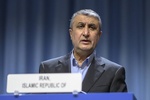
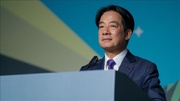


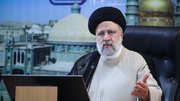
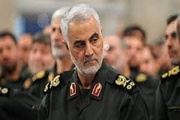
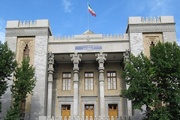
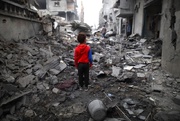

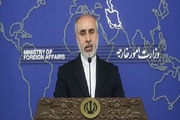
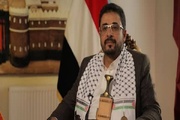
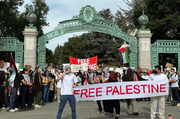

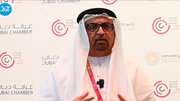
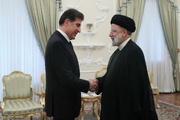
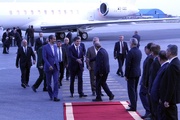
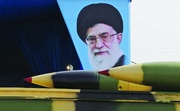
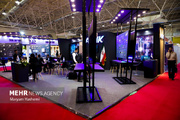
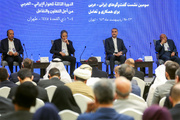

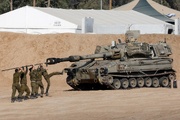
Your Comment